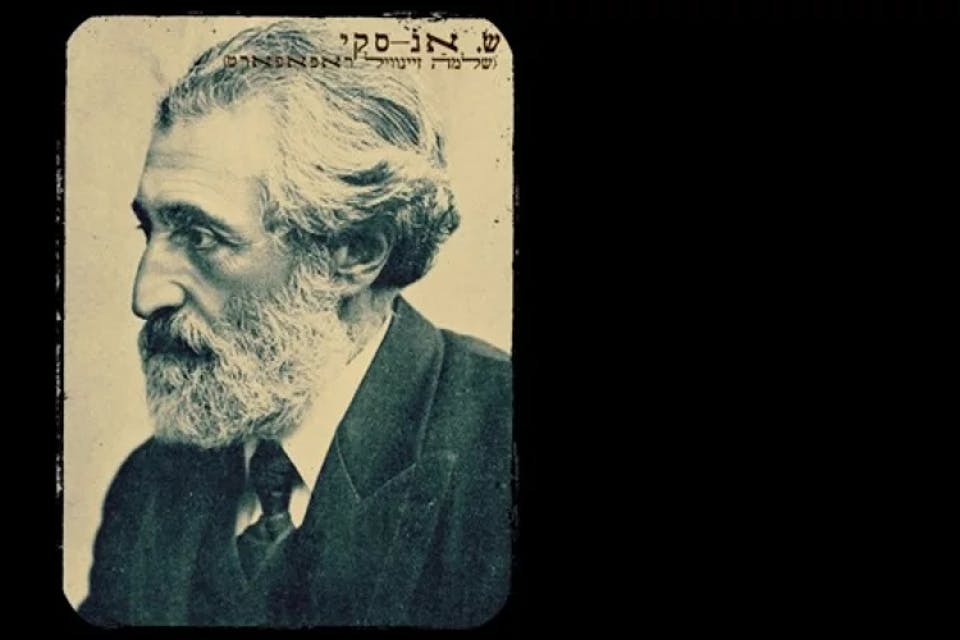
September 9, 2021
The Crackpot Ideas of Yiddish Fiction’s Most Improbable Scenarios Become Real
S. Ansky's radical yeshiva boys used to seem unreal. But observing today's political scene has taught me to understand them.
When I began reading Yiddish literature in the 1960s, I came across a scenario so improbable that I wondered whether any such thing could actually have occurred. The work was “Behind a Mask” by S. Ansky (best known as the author of The Dybbuk), and the fictive incident was presumably based on his own observations as a budding revolutionary in Russia in the 1880s.
In the story, a seventeen-year-old named Shekhtl has become the roommate of two other renegade yeshiva students who go by their last names, Braines and Krantz. In the style of Russian revolutionaries, the three hope to spread the subversive ideas of the Jewish Enlightenment, the Haskalah, in their religious communities. Shekhtl, the youngest, is always bursting with fantastic notions for the improvement of mankind: since nature should provide the model of what is good, its imperfections should be eliminated. To that end, he proposes that “mountains should be leveled and the valleys filled in—then all the world would be flat and beautiful.” In other words, nature is not so much a model as it is a tableau on which Shekhtl’s visions can be made manifest.
The boys are going hungry, so although they don’t take Shekhtl seriously, they pay attention when he comes up with a scheme for securing some income. Shekhtl’s parents in the town of Bobiltseve have stopped sending him his monthly stipend because they correctly suspect that he has left his studies and taken a heretical turn. He proposes that Krantz move to his town and introduce himself as Shekhtl’s friend. Once he reassures the parents about their son, they will resume their support of him and help Krantz find students to tutor whom he can then lead “off the path,” thereby serving both their stomachs and their cause.